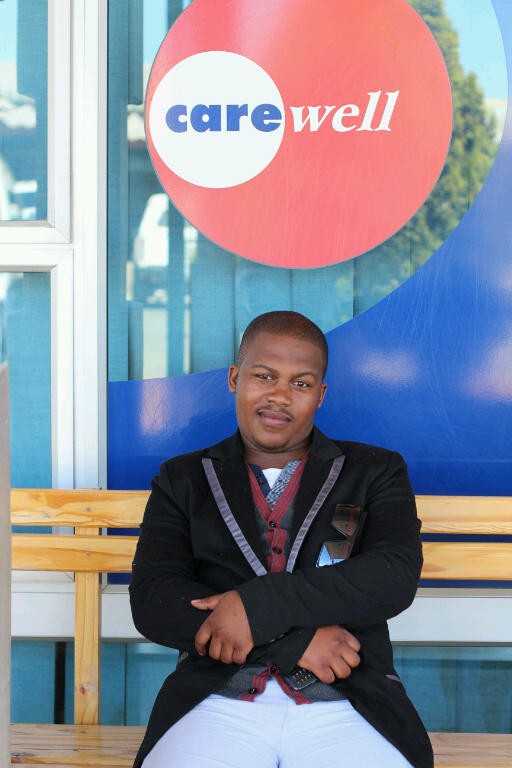
Outside the Carewell Clinic in Lesotho, scores of men and adolescent boys are sitting under the sun. All of them are here for the same reason—voluntary medical male circumcision (VMMC) for HIV prevention.
Inside the clinic, a well-dressed man named Hlalele* is just beginning the VMMC process. He has already gone through related group and individual counseling and is awaiting his screening, after which he will undergo the VMMC procedure.
The 24-year-old man grew up in Lesotho’s capital, Maseru, completed high school, and now works as a waiter at one of the country's large hotels, a job that he enjoys very much. However, on the advice of his older brother, he has taken the day off to visit Carewell Clinic for the free VMMC services offered through the Lesotho Ministry of Health and USAID’s flagship Maternal and Child Health Integrated Program (MCHIP).
“My brother came to Carewell and got circumcised," says Hlalele. "He said the doctors and nurses did a good job and it decreases the chances of getting HIV and it will be easier to keep myself clean. And my brother said it was a good service that wasn’t too painful.”
Hlalele is one of hundreds of males seeking VMMC services daily throughout Lesotho. In contrast to other countries—where rapid scale-up of circumcision services has encountered problems—the Ministry of Health and MCHIP have implemented a step-by-step approach that is proving successful. To date, nearly 39,000 men have been medically circumcised, with continuous demand for services. Through strong leadership from the Ministry of Health, the program works within the existing health system, and respects cultural sensitivities regarding traditional rites of initiation to adulthood that include elements of circumcision.
After conducting advocacy meetings with chiefs throughout the country, the Ministry of Health requested MCHIP to offer VMMC services in hospital settings only to ensure the procedure is recognized as a medical intervention and is not confused with traditional rites of initiation. Moreover, promotional activities have focused mainly on word of mouth at the local level. This approach has been key to the program's success.
To meet the high demand for services, the Ministry of Health and MCHIP have opened 13 facilities. All doctors, nurses and counselors providing VMMC participate in a two-week training for male circumcision using local anesthesia. Services are available two days a week (including Saturdays) in nine facilities, and daily in four high-volume sites.
With the success of the VMMC program, MCHIP has committed to ensuring high-quality, comprehensive services for all men and adolescent boys in Lesotho. These services include HIV prevention messaging and condoms, linkages with care and treatment, and additional sexual and reproductive health education.
Moreover, VMMC uptake in Lesotho has the ability to change the course of the HIV epidemic: Modeling shows that for every five male circumcisions completed, one infection will be averted and millions of dollars are saved in care and treatment costs. The challenges now are keeping demand high and fully integrating VMMC into the national HIV prevention plan.
Before Hlalele went in for his screening, he proudly expressed his wish for all Basotho men to be circumcised: “It is temporary pain that will benefit all men. All men should do it!”
The MCHIP VMMC program is implemented by Jhpiego with funding from the U.S. President’s Emergency Plan for AIDS Relief. MCHIP's funding for Lesotho's VMMC program will end in December 2013, however, Jhpiego will continue the program with support from USAID's Accelovate project. MCHIP, which runs from October 2008 to September 2014, supports programming in maternal, newborn and child health, immunization, family planning, malaria, nutrition and HIV/AIDS.
*Full name withheld for privacy reasons.







Comment
Make a general inquiry or suggest an improvement.